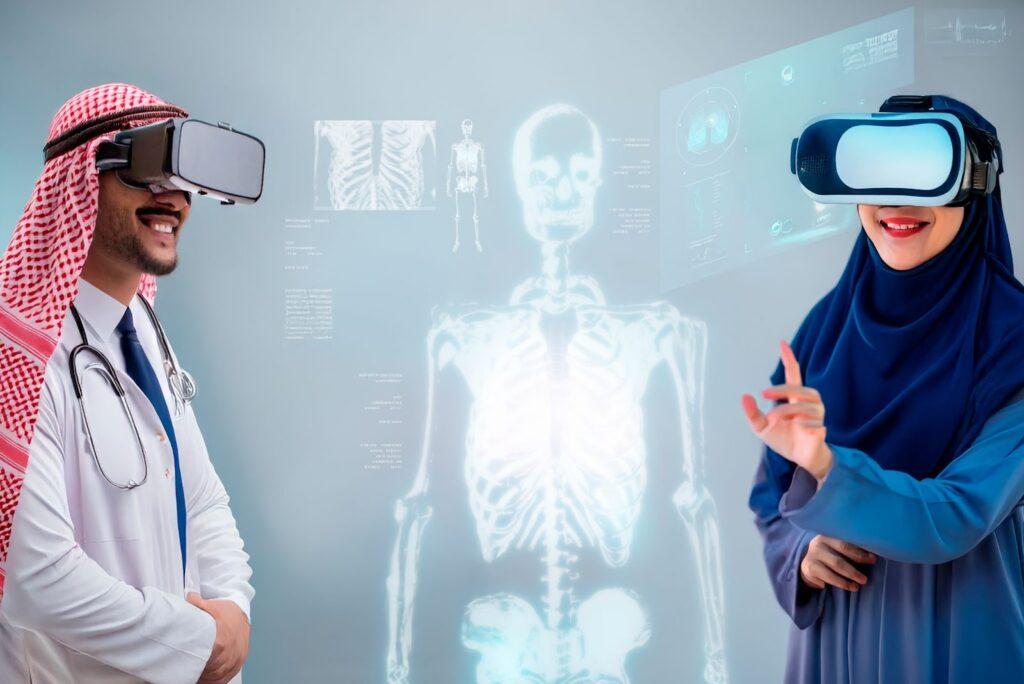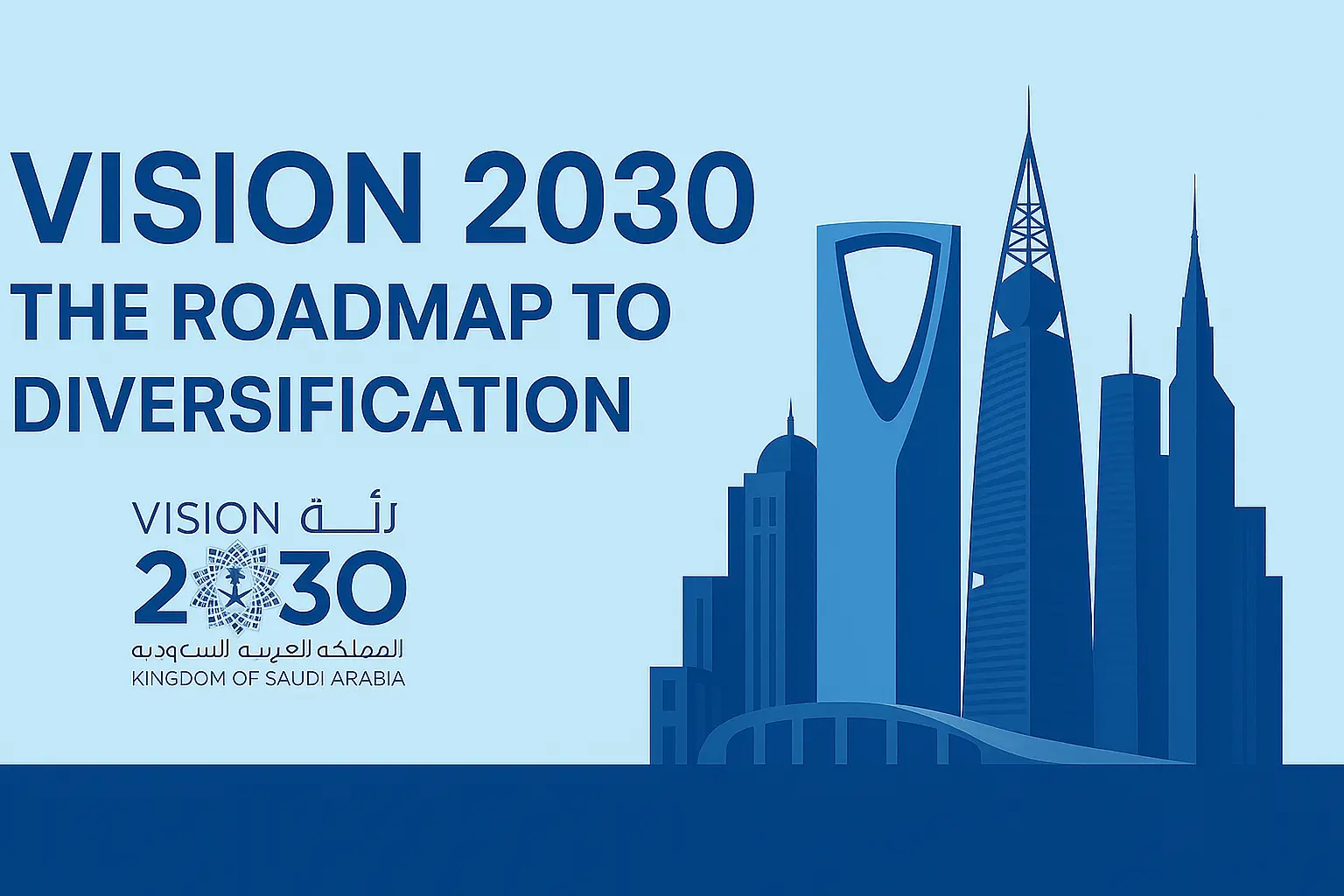AI in Saudi Arabia: Paving the Path to Becoming a Global Innovation Hub by 2030
Saudi Arabia has long been a leader in the energy sector, but the country is undergoing a dramatic transformation. With Vision 2030, Saudi Arabia is aiming to diversify its economy and establish itself as a global hub for innovation. A key player in this transformation? Artificial Intelligence (AI). The Kingdom sees AI as a cornerstone in its drive toward technological leadership, economic growth, and sustainable development. By 2030, Saudi Arabia aims to be a world leader in AI, leveraging the technology to reshape industries, improve public services, and create jobs.
But how exactly is AI accelerating this transformation, and what role will it play in the future of Saudi Arabia? Let’s take a deeper dive.
The Foundation of Saudi Arabia’s Vision 2030: AI as a Pillar of Economic Diversification
Vision 2030 is all about reducing the Kingdom’s reliance on oil and creating a sustainable, diversified economy. At the heart of this strategy lies technology, and AI is positioned to play a critical role in helping the country reach its goals. The government has made AI a top priority and established frameworks to promote its development and application.
The Saudi Data and Artificial Intelligence Authority (SDAIA) was established in 2019 as part of this vision. Its mission is to drive the national AI agenda, helping Saudi Arabia become a leader in AI by setting up the right policies, fostering innovation, and creating a competitive, tech-driven ecosystem. The country’s ambition is clear: to be the driving force behind AI in the Middle East and beyond.
AI in Key Sectors
AI is already making significant strides across various sectors in Saudi Arabia, and its impact is set to grow exponentially by 2030. Let’s take a closer look at some of the key areas where AI is revolutionizing industries.
1. AI in Healthcare: Faster, Smarter, and More Efficient

AI is bringing transformative change to healthcare in Saudi Arabia, helping doctors make faster diagnoses, plan treatments, and deliver better care. AI-powered systems are now capable of analyzing medical images with incredible precision, detecting issues like tumors or heart disease earlier than ever before. These AI tools not only improve diagnostic accuracy but also reduce human error, making healthcare more reliable.
Additionally, AI is enabling telemedicine to flourish. With remote consultations powered by AI, patients can access quality healthcare no matter where they are. This is particularly important in rural areas where medical services may be scarce.
2. AI in Energy: Optimizing Resources and Advancing Sustainability

While Saudi Arabia’s oil reserves have long been a key factor in its global influence, the country is shifting toward sustainability in the energy sector. AI is helping the Kingdom optimize its energy usage, improve efficiency, and integrate renewable sources such as solar and wind power.
AI is already being used to improve smart grids, which help manage electricity distribution more efficiently. These AI-powered grids can predict energy demand, optimize energy use in real-time, and reduce waste. Additionally, AI-driven solutions are improving oil extraction techniques, making them more efficient and sustainable.
Saudi Arabia’s goal is to continue developing its energy sector with the help of AI, creating a more sustainable and competitive landscape for future generations.
3. AI in Education: Personalized Learning for a Digital Future

Saudi Arabia is investing heavily in education and AI, and the combination of these two is transforming how students learn. AI is being used to develop personalized learning platforms that tailor educational content to individual students’ needs. By analyzing data on students’ progress, learning styles, and strengths, AI can recommend resources and study plans that maximize each student’s learning potential.
Moreover, Saudi Arabia’s focus on vocational training and upskilling the workforce means that AI is also used to prepare students for the jobs of the future, particularly in emerging fields like technology and digital innovation.
AI and Economic Growth: Fueling Startups and Entrepreneurship

One of the most exciting developments in Saudi Arabia’s AI landscape is the rise of AI-driven startups. The government has introduced initiatives to support tech entrepreneurs, including funding, mentorship, and innovation hubs. These efforts are helping create an ecosystem that nurtures AI innovation and positions Saudi Arabia as a regional leader in technology.
In particular, the MiSK Foundation and the King Abdulaziz City for Science and Technology (KACST) have played key roles in fostering an innovation-driven culture. AI-powered startups are developing solutions across various sectors, including FinTech, HealthTech, and EduTech, transforming traditional industries and providing new business opportunities.
AI is also helping in the financial sector, where it is used to automate tasks like fraud detection, risk management, and customer service, making financial services more efficient, accessible, and secure.
The Social Impact of AI: Improving Governance and Public Services
AI is not just about business and industry; it’s also playing a major role in improving public services and government efficiency. Saudi Arabia is using AI to optimize administrative processes, improve citizen engagement, and deliver services more effectively.
For example, AI chatbots are helping citizens access government services quickly and efficiently. These AI tools can answer questions, process requests, and provide real-time support, reducing the burden on human staff and speeding up service delivery. Additionally, AI-powered data analytics are helping the government make better decisions by providing insights into everything from traffic patterns to urban development needs.
The Future of AI in Saudi Arabia: Challenges and Opportunities
Saudi Arabia’s push to become a global AI leader by 2030 is ambitious, but it is not without its challenges. One of the major hurdles is ensuring that the Kingdom’s AI workforce is equipped with the necessary skills. As AI continues to advance, it will be critical to invest in education and training programs that prepare the next generation of Saudi workers for careers in AI, data science, and related fields.
Another challenge is data privacy and security. As AI applications grow, so does the need for robust regulations that ensure data is handled responsibly and ethically. The Saudi government is already taking steps to address these concerns, but the rapid development of AI will require ongoing regulatory innovation to keep up with new technologies.
At the same time, AI represents an incredible opportunity for Saudi Arabia to enhance its global competitiveness, foster innovation, and improve the quality of life for its citizens. With the right investments, infrastructure, and policies in place, AI will be a powerful driver of growth, allowing Saudi Arabia to achieve its Vision 2030 goals and become a global innovation hub.
Conclusion: AI as a Game Changer for Saudi Arabia’s Future
AI is not just a technological tool for Saudi Arabia; it is a transformative force that is reshaping industries, improving public services, and driving economic growth. With Vision 2030 as its roadmap, the Kingdom is well on its way to becoming a global leader in AI innovation.
By continuing to invest in AI research, education, and infrastructure, Saudi Arabia is laying the groundwork for a future where it is not only a key player in the global economy but also a beacon of technological progress. The next decade will be crucial for the Kingdom, as AI becomes a driving force behind its ambition to diversify its economy, improve its society, and lead the world in innovation.
Read article


